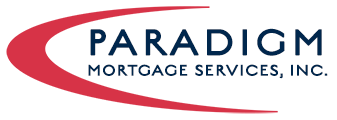
The process of getting a mortgage loan can be daunting. Understanding what a conventional loan actually is and some of the advantages over a government insured loan might help you decide if it’s right for you.
A conventional mortgage loan, also known as conforming loans, conventional loans, “conform” to a set of standards set by Fannie Mae (Federal National Mortgage Association) and Freddie Mac (Federal Home Loan Mortgage Corporation), two agencies that help standardize mortgage lending in the U.S. These institutions are two of the largest acquirers of mortgages on the secondary market.
In mortgage-speak, loans break down into two categories — conventional and government. A conventional mortgage is the industry phrase for a loan made by a private lender, such as a bank. Many conventional loans are subsequently sold to Fannie Mae or Freddie Mac, the quasi-governmental companies that exist to buy up great quantities of loans to keep money circulating through the loan system. The word “conventional” refers to a loan not insured by a government agency (unlike FHA, VA and USDA loans which are backed by government-operated insurance pools). Also, the size of conventional loans cannot exceed conforming loan limits set by the Federal Housing Finance Agency (FHFA).
Nearly 70% of all home loans made in the United States are conventional.
Conventional loans can be the most flexible loan products on the market. Their guideline rules can and often change yearly. The main change, year after year, is to the upper loan limits. Anything above that limit is known as a jumbo loan, which is usually a conventional, non-conforming loan. Fannie and Freddie do not sponsor jumbos. Instead, jumbo loans are sold to private investors or held by the banks that may have initially underwritten them.
Advantages of a Conventional Loan Program
- Can use to buy a primary residence, second home, or rental property Available in fixed rates, adjustable rates (ARMs) with loan terms from 10 to 30 years
- Down payments as low as 3%
- No monthly private mortgage insurance (PMI) with a down payment of at least 20%
- Lower mortgage insurance costs than FHA loans
- Mortgage insurance can be canceled when home equity reaches 20% (unlike FHA which lasts the life of the loan)
Understanding the basic principals of mortgage loans can help ease the stress of the mortgage lending process, however by reaching out to a knowledgeable, trusted and experienced mortgage broker, like Paradigm Mortgage you can go back to dedicating your time to reaching your life goals and to your family, friends and work because we do all the worrying for you. We explain the entire mortgage lending process to you, in your language and help you get your best mortgage.
